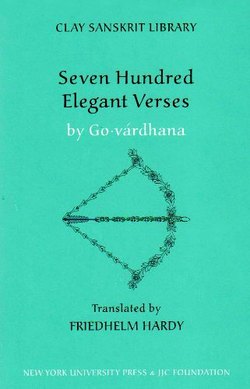Читать книгу Seven Hundred Elegant Verses - Govardhana - Страница 16
На сайте Литреса книга снята с продажи.
Оглавлениеhave I been prepared to pay such a heavy price? Let us look at what Go·vardhana himself does:
In the real life context for which the poetry was intended, someone would slowly recite to an audience, bit by bit. Thus we start with, suka iva, “like a parrot.” Something, as yet not introduced, is compared to a parrot. The next element, daru/salaka/panjaram, “the cage made of wooden twigs,” logically connects with “parrot,” and (simplifying matters somewhat) the listener will assume that the parrot does something to its cage. Next comes anudivasa/vardhamano, in itself unambiguous: “growing bigger day by day,” which appears to be a meaningful description of a parrot. So far so good; but the word me at the end of the first line breaks the smooth flow of ideas or images. This “of me” or “to me” has to be retained in one’s mind in isolation (with “my parrot” as one possibility). The krntati at the beginning of the second line tells us now what the parrot does to its cage: “it tears it apart,” though how it does so remains unsaid so far. With the next phrase, dayita/hrdayam, “the heart of the beloved,” an entirely new feature is introduced. All that can now be said is that possibly the me belongs to it, viz. “my beloved,” and that the heart is set in parallel to the cage, that the something which is compared to a parrot, breaks it apart. This now is revealed to be sokah, “grief.” Finally we have a complete sentence, and what otherwise might appear ______________
